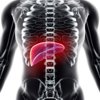Fritextsökning
Artiklar per år
Innehållstyper
-

Ny chefredaktör på Läkartidningen
Åsa Uhlin har utsetts till ny chefredaktör på Läkartidningen efter avgående Pär Sandell.
-

”En väldigt uttalad AI-ångest i samhället idag”
AI kommer mer eller mindre bli en självklarhet på framtidens vårdavdelningar. Det menar Max Gordon, läkaren och AI-experten som forskar på nya applikationer vid Danderyds sjukhus.
-

Radioactive tracer to measure effect of drug towards Crohn’s disease
A radioactive tracer developed by Astra Zeneca and the Karolinska Institutet may play a major role for patients with Crohn's disease. That is the belief of Maria Belvisi at AstraZeneca.
-

Jan Holmgren to receive award for the development of cholera vaccine
Researcher Jan Holmgren is being awarded for the development of the first effective drinkable cholera vaccine. The award is given by the International Vaccine Institute (IVI) and vaccine company SK bioscience.
-

The life science strategy – what the industry wants
The process of updating the national life science strategy has begun at the government’s life science office. According to industry stakeholders, Sweden’s competitiveness, the accessibility of health data and the integration of innovation in healthcare are some of the points that are essential to review.
-

”We need compatibility“
Penilla Gunther, founder of Fokus Patient and chair of the European Patient Safety Foundation, hopes that the forthcoming life science strategy will focus on efficient and secure management of patient data and equal access to medicines.
-

Ny rapport: Bolagen fortsatt optimistiska om svensk hälsoexport
Trots oro i omvärlden och osäkerhet kring världsekonomin råder optimism bland svenska företag inom hälsoexport, enligt en ny rapport.
-

Anna Törner: ”Orphan Designation – the "petite robe noire" of drug development”
It is easy to cling to various regulatory incentives, like orphan designation, and other expedited pathways, without understanding what they truly mean or whether they are indeed right (or wrong) for the current project, Anna Törner writes in a column.
-

Specific proposals and targets top the universities’ desired priorities
What are the universities’ expectations for the update of the national life science strategy? Life Science Sweden posed the question to representatives from Karolinska Institutet and Sahlgrenska Academy.
-

Första behandlingen mot vanlig leversjukdom godkänd i USA
Efter många år av utveckling har nu för första gången en behandling mot fettlever med leverskada godkänts av det amerikanska läkemedelsverket FDA.
-

Analys av metaboliter hjälp för att skräddarsy behandlingar
Genom att studera kroppens nedbrytningsprodukter, metaboliter, kan behandlingar bättre skräddarsys för patientens specifika behov och förutsättningar. Det säger Dusan Raicevic som jobbar på företaget Metabolon.
-

Björn Arvidsson: "Regler stimulerar innovation"
Nya krav tvingar fram nya sätt att tänka och får därmed fart på vår kreativitet, skriver Björn Arvidsson i en krönika.
-

Stark comeback för Affibody-kandidat efter misslyckande i fjol
Positiva data rapporteras för Affibodys läkemedelskandidat Izokibep vid behandling av psoriasisartrit (PsA) i en fas IIb/III-studie.
-

Forskare närmare att skapa konstgjorda äggceller – ”Väldigt stora risker”
Kan en hudcell förvandlas till ett ägg som kan producera livskraftiga embryon? Nya forskningsframsteg kopplade till tekniken som användes för fåret Dolly kan innebära en revolution inom reproduktionsmedicin, enligt ny studie. Men Niklas Juth, professor i medicinsk etik, är skeptisk.
-

Jättestudie: Storpratare i mobilen löper inte större risk för hjärntumör
En stor studie med över en kvarts miljon deltagare fann inget samband mellan långvarig mobiltelefonanvändning och risken för hjärntumör.
-

Venom from the deathstalker carries radiopharmaceuticals to the brain
In order to target cancerous brain tumours with radionuclides, the problematic blood-brain barrier must first be crossed. Life Science Sweden has visited a KI researcher who is trialling an unusual approach ‒ using scorpion venom.
-

“Life science is important on a personal level”
From the High Coast to the Government Offices. Jeanette Edblad is a native of Ångermanland, and since September last year, she has been Head and Coordinator of the Government’s Life Science Office.
-

Calliditas får förlängd marknadsexklusivitet för njurläkemedel
Calliditas Therapeutics njurläkemedel Tarpeyo får nu ytterligare marknadsexklusivitet i sju år i USA av den amerikanska läkemedelsmyndigheten, FDA.
-

Samuel Lagercrantz: ”Will the Swedish life science strategy be updated with precision?”
What will the Swedish government focus on in the life science strategy that is being updated? And what should be prioritized in the strategy? Life Science Sweden's editor-in-chief Samuel Lagercrantz highlights three areas.
-

Så ser investerarnas önskelista ut
Radiofarmaka, antikroppsläkemedelskonjugat och neurologi. Det är några av de hetaste områdena för investerare inom life science i Sverige just nu.
-

Prismiljoner till forskning om TBE och bakterieätande virus
TBE-virusets väg till hjärnan och bakteriofager som alternativ till antibiotika hör till de forskningsfält som premieras när sammanlagt 33 miljoner kronor tilldelas fem yngre forskare i Sverige.
-

“What is important is to create an overview and understanding from different perspectives”
Scientist Jochen Schwenk analyses blood proteins using proteomics to improve our understanding of disease and health. This year, he is moderating the Lab & Diagnostics of the Future event.
-

From Valneva to the CEO position at NorthX – “I saw it as a great opportunity”
A new cell therapy for leukaemia, a vaccine in tablet form against cholera, and a proprietary mRNA line with the potential capacity to supply the entire Nordic region with vaccines during a future pandemic. These are some of the projects underway
-

Marie Gårdmark: ”Interchangeable biological medicines – soon in a pharmacy near you?”
”Generic competition is an effective way to push down drug prices, but it has not worked equally well for biosimilars. Biosimilars require more time to gain market share compared to generics, and new biosimilars do not always lead to lower prices” writes